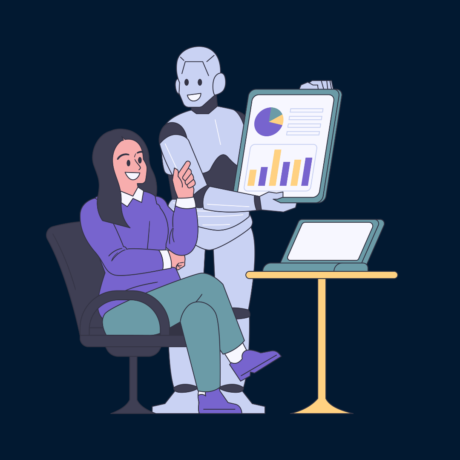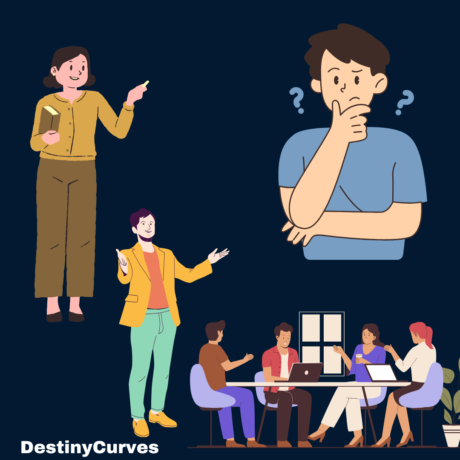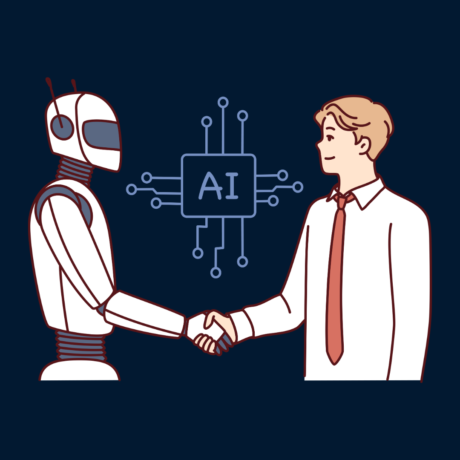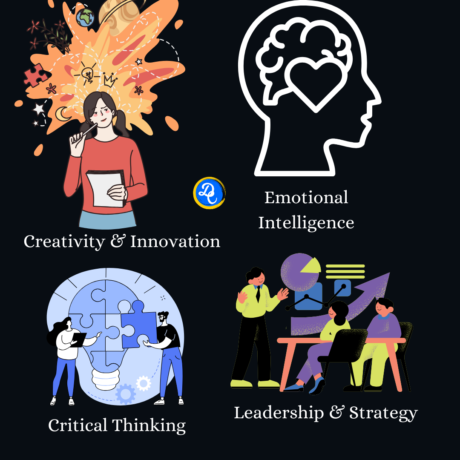AI is everywhere! From your phone to your workplace, it's shaping the world. AI's transformative role in the future.Does it mean the end of human jobs ?

AI is taking over many repetitive and data-heavy tasks, allowing humans to focus on more creative and strategic roles. Some key areas where AI is making an impact include:
Automating Repetitive Tasks – AI-powered systems handle tasks like data entry and assembly-line manufacturing with speed and precision.
Big Data Analysis – From detecting fraudulent transactions to predicting stock market trends, AI helps businesses make data-driven decisions.
Solving Complex Problems – AI plays a crucial role in areas like drug discovery and optimizing supply chains, solving challenges that were once impossible to tackle efficiently
Where Humans Lead ?

Creativity: Writing, art, and innovation.
Creativity involves abstract thinking, originality, and the ability to connect disparate ideas—qualities AI struggles to replicate without human input.
2.Empathy: Counseling, healthcare decisions.
– Empathy requires understanding emotions and responding with care and compassion. AI may simulate empathy but lacks true emotional depth.
3. Leadership: Inspiring teams and ethical decision-making.
– Leadership is not just about strategies; it’s about inspiring, motivating, and making morally complex decisions that align with societal values.
Will Your Job Be Replaced?

Future-Proofing Your Career

Jobs requiring emotional intelligence.
Human Strengths That Complement AI
1. Creativity
While AI can assist in generating content, humans lead in innovation and imagination.
AI’s Role: Creates designs, art, music, and written content based on patterns and data it has been trained on.
Human Edge: Original ideas, storytelling, and inventing new concepts come from human creativity, driven by intuition and cultural understanding.
2. Empathy
AI lacks the emotional intelligence needed for roles requiring deep interpersonal connections.
Empathy in Action:
Counseling: Effective therapy requires understanding emotional nuances, which AI cannot replicate.
Caregiving: Human caregivers offer compassion, comfort, and a personal touch that no AI can replace.
3. Complex Decision-Making
Strategic roles demand more than data-driven analysis—they require moral reasoning and contextual understanding.
AI’s Limitations: AI can recommend decisions based on patterns and data but lacks awareness of cultural, ethical, or situational nuances.
Human Edge:
Leadership: Strategic planning and making moral judgments in complex scenarios.
Policy-Making: Balancing data insights with societal impacts, emotions, and fairness considerations.
Jobs Most Likely to Be Automated.
AI is especially effective at handling repetitive, data-driven, and highly structured tasks. Jobs that involve these elements may be at risk for automation.
Examples:
- Data Entry: AI can automate data extraction, processing, and entry.
- Manufacturing Line Work: Robots can handle repetitive tasks like assembly, packaging, and quality control.
- Customer Support: Chatbots and virtual assistants can answer basic customer queries efficiently.
While AI will likely transform various industries, the roles that involve human creativity, empathy, complex problem-solving, and ethical decision-making are less likely to be fully replaced. In fact, AI and humans will work in tandem to complement each other’s strengths.
How to Stay Relevant ?
- Learn AI-related skills (e.g., Python, ML).
- Focus on creativity & emotional intelligence.
- Collaborate with AI to amplify your impact.



